Science Talk
With our Science Talk blog, we hope to lift the lid on the black box that is the ICR: to show you inside our labs, to introduce you to a few of the people here who make the discoveries, and to allow them to tell some of the stories behind the science. We try to put our discoveries in a wider scientific context, and give an idea of how our science is actually done. We also give you the view from the ICR of important developments in the wider world of cancer research.
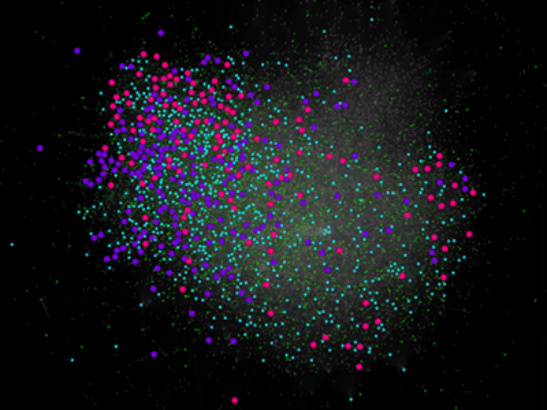
Unravelling the proteome: how we can use proteomics to understand and treat rare cancers
Dr Paul Huang is using proteomics as part of his ongoing research into sarcomas. Diana Cano talked to him to find out how why it is important to understand the protein machinery that drives this cancer type.
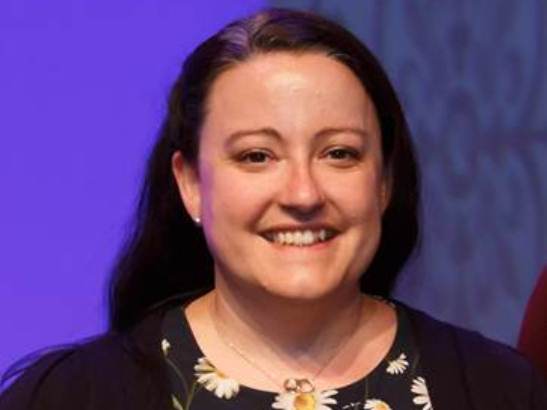
Blood Cancer Awareness Month 2021: Meet a blood cancer researcher
We interview Charlotte Pawlyn, one of our top blood cancer researchers. Find out the ins and outs of the life of a scientist, the latest discoveries in the laboratory, and how patients help direct Charlotte's research into kinder, smarter therapies.
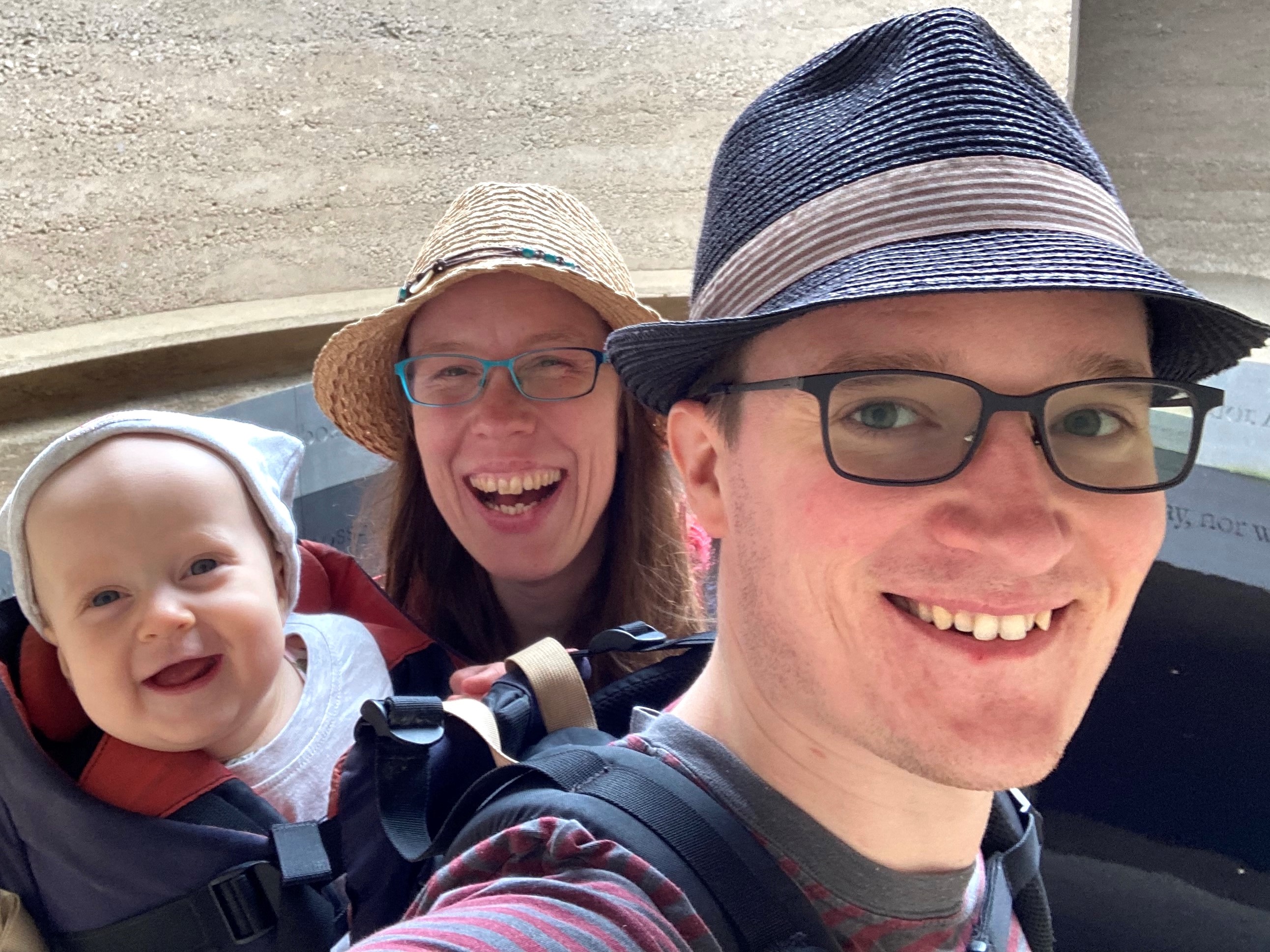
The Lost Tribe: Improving the lives of young adults with cancer
Caught between child and adult care, young adult cancer patients have been described as a 'lost tribe'. In this blog, Juanita Bawagan speaks to patient and researcher Sam Beardsworth and Staff Scientist Dr Olga Husson about the unique challenges that young adults with cancer face.

Blood Cancer Awareness Month 2021: Recent advances in blood cancer research at the ICR
Worldwide, more than one million people are diagnosed with blood cancer each year. For Blood Cancer Awareness Month, our Communications Administrator Molly Andrews looks back at some recent developments in blood cancer research at the ICR.

Ambassadors of change: how our students are driving innovation and diversity
As we mark our annual Teaching Week – celebrating our students’ contribution to life here at The Institute of Cancer Research – our Registrar Dr Barbara Pittam describes how our students play a central role in both our world-leading cancer research and creating a diverse, inclusive culture.

“I’m 33 years old, and there’s still so much I want to do” - Kate's story
Kate Parker was diagnosed with stage 4 bowel cancer just before her 30th birthday. She tells us what more treatment options mean for her.

“There was a lot of joy, and a lot of living got done” - Hilary's story
Hilary Morgan kindly shared the story of her husband, Tim, to support our bowel cancer fundraising appeal. Tim was diagnosed with advanced bowel cancer at the age of 43. Here, Hilary tells us more about how pioneering treatments gave him a chance to live.

ASCO 2021: ICR research makes an impression at virtual cancer conference
The ASCO Annual Meeting took place virtually over the weekend, with many ICR researchers attending and presenting abstracts. Here we look back over some of the highlights of this year’s meeting.

ASCO 2021: The science behind olaparib’s promise shown in the OlympiA early breast cancer trial
The OlympiA trial results show the benefits of a targeted drug in patients with early-stage breast cancer and inherited BRCA mutations. We spoke to Chair of the OlympiA steering committee Professor Andrew Tutt about the landmark ICR research that underpins this major breakthrough.

ASCO 2021: Global cancer researchers reunite virtually
We look ahead at some of the highlights that scientists from The Institute of Cancer Research will be presenting at this year’s virtual edition of the ASCO Annual Meeting.
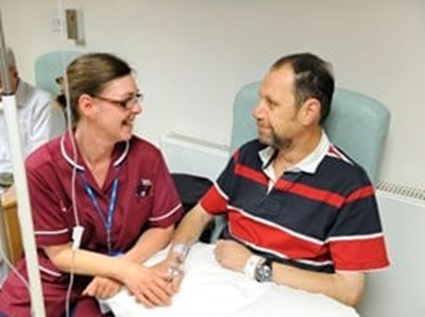
Listen to the patient: International Clinical Trials Day 2021
Professor Christina Yap is Team Leader in Early Phase and Adaptive Trials within our Clinical Trials and Statistics Unit (ICR-CTSU). Her work on clinical trial design involves rethinking conventional procedures to make trials more efficient and outcomes more relevant for patients.
On International Clinical Trials Day 2021, Gege Li spoke to Professor Yap to find out more about one change that could improve how we uncover adverse symptoms in cancer patients.

Shining new light on immunotherapy for breast cancer
Research shows some breast cancer types may benefit from immunotherapy, but new trial designs are needed to evaluate this potential.
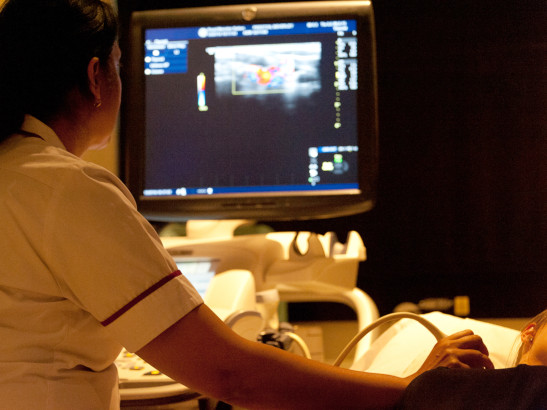
International Medical Physics Week 2021 – how the ICR has pioneered ultrasound research to study and treat cancer
Physics plays an important role in cancer research, and in helping to understand and treat the disease. To mark International Medical Physics Week, Graham Shaw discussed pioneering ultrasound research with two of The Institute of Cancer Research’s leading Medical Physicists, Dr Emma Harris and Professor Jeffrey Bamber.

DNA Day: How we’re turning the tables on cancer
DNA damage is the underlying cause of cancer – but it is also a key weakness in cancer cells that can be exploited for treatment. This DNA Day, we highlight scientists at the Institute of Cancer Research who are exploring how cancer cells repair damage to their DNA to understand more about how cancers develop, and to uncover new ways to treat the disease.
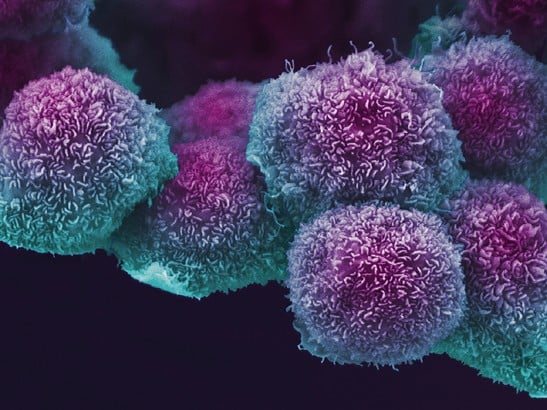
AACR 2021: Cancer discoveries on a virtual platform
With the 2021 AACR Annual Meeting around the corner, Gege Li looks at some of the cutting-edge work being presented by our researchers.
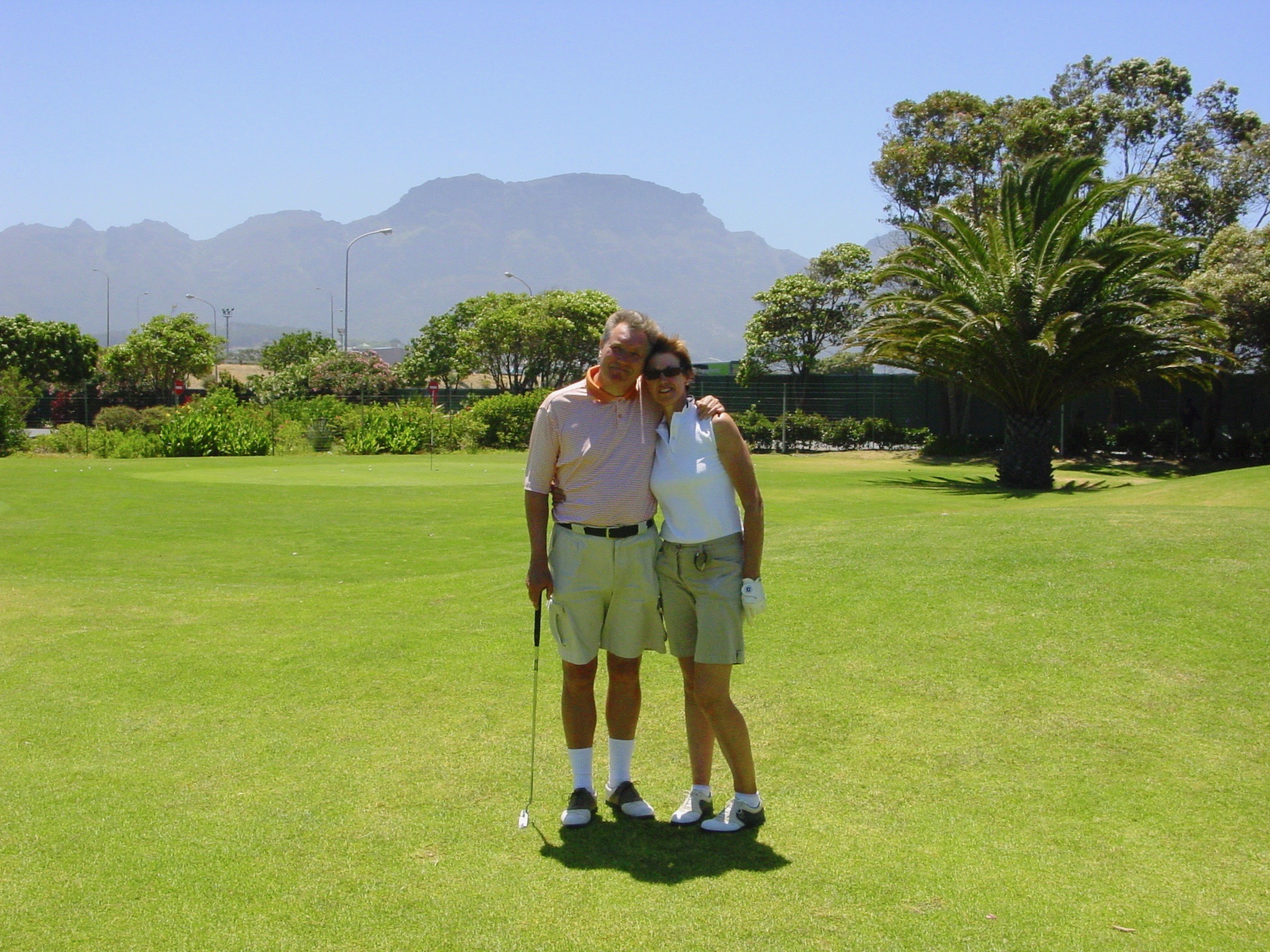
“Abiraterone gave my husband time to live life to the full” - Sue's story
Sue’s husband, Philip, was entered onto a clinical trial for abiraterone when his prostate cancer developed resistance to the treatment he was on. She tells us what a difference it made to their lives.
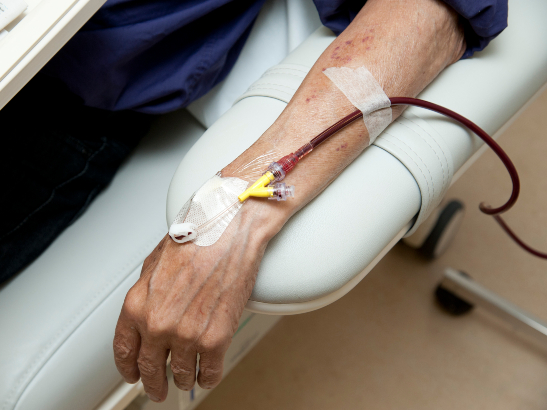
One year on, taking stock of the cancer crisis
Professor Clare Turnbull from The Institute of Cancer Research recently joined an expert panel to reflect on the cancer patient and surgery backlog and discuss what we’ve learnt since the UK went into lockdown one year ago. Julia Bakker summarises the discussion.
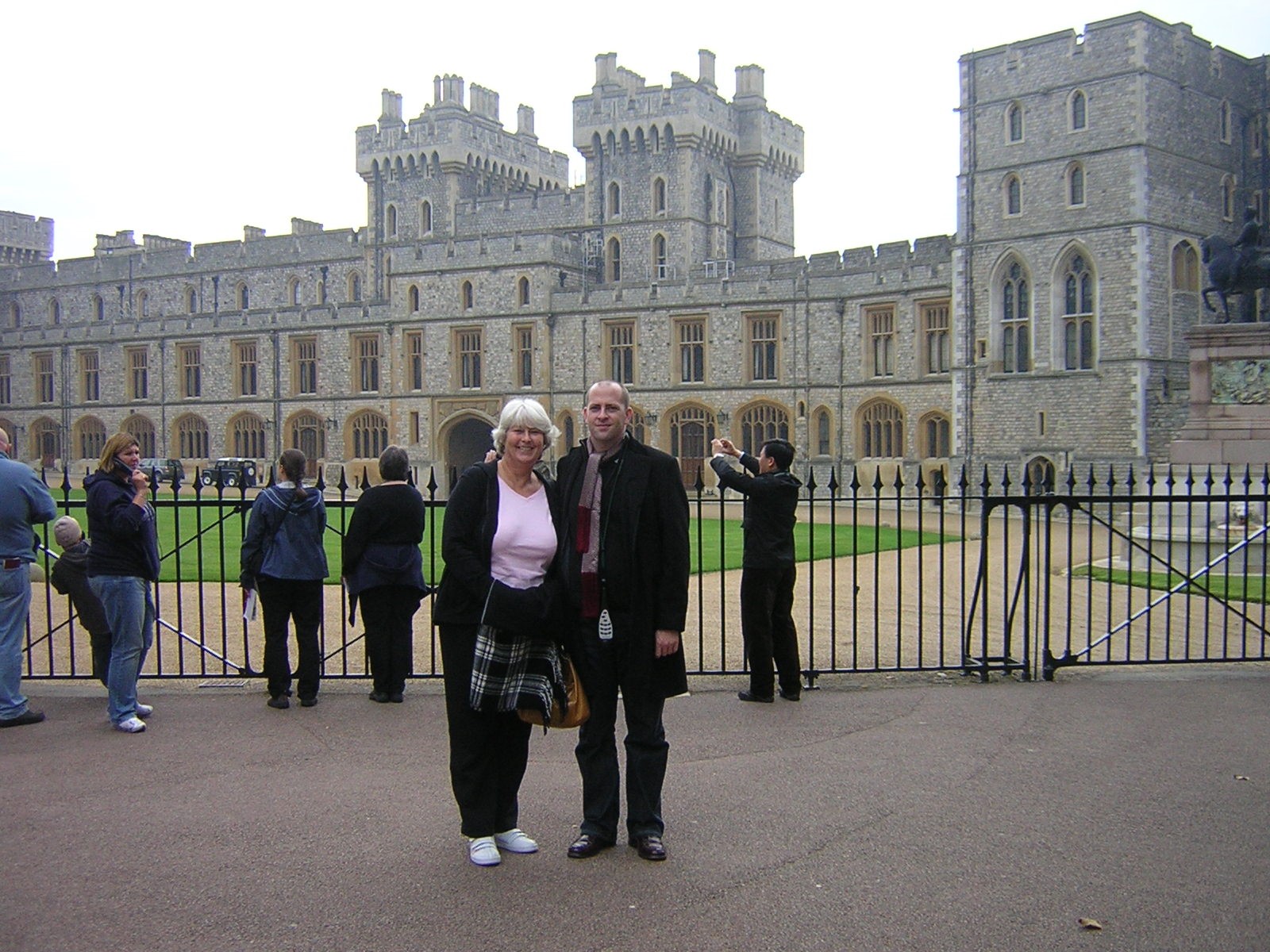
Mother’s Day: The generations of mums inspiring their children to become scientists
Molly Andrews spoke to four of our scientists about the pivotal roles their mothers played in inspiring them to pursue careers in science, some of the barriers mothers face, and the importance of continuing to strive for gender equality in science.
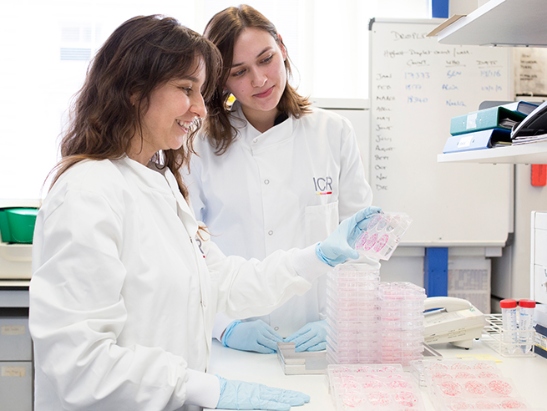
International Women’s Day 2021: What does mentorship look like?
For International Women’s Day, we're talking about the importance of mentorship — for science, for careers and for life. Juanita Bawagan and Clara May spoke to our researchers about their mentorship journeys and how formal mentoring programmes are supporting women in science.
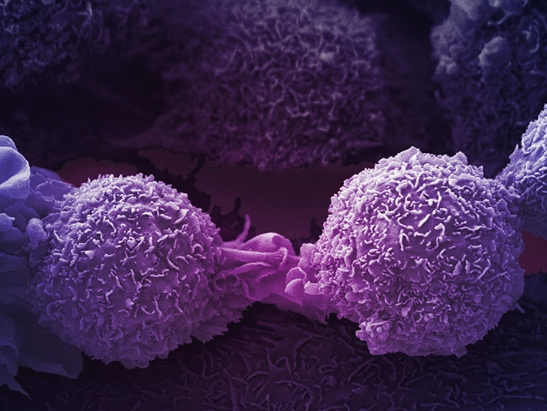
How our researchers are using AI to crack cancer evolution
Most advanced cancers undergo genetic changes that enable them to resist the drugs meant to kill them. ICR scientists like Dr Yinyin Yuan are working to better understand why this happens in lung cancer, in an attempt to crack cancer evolution.